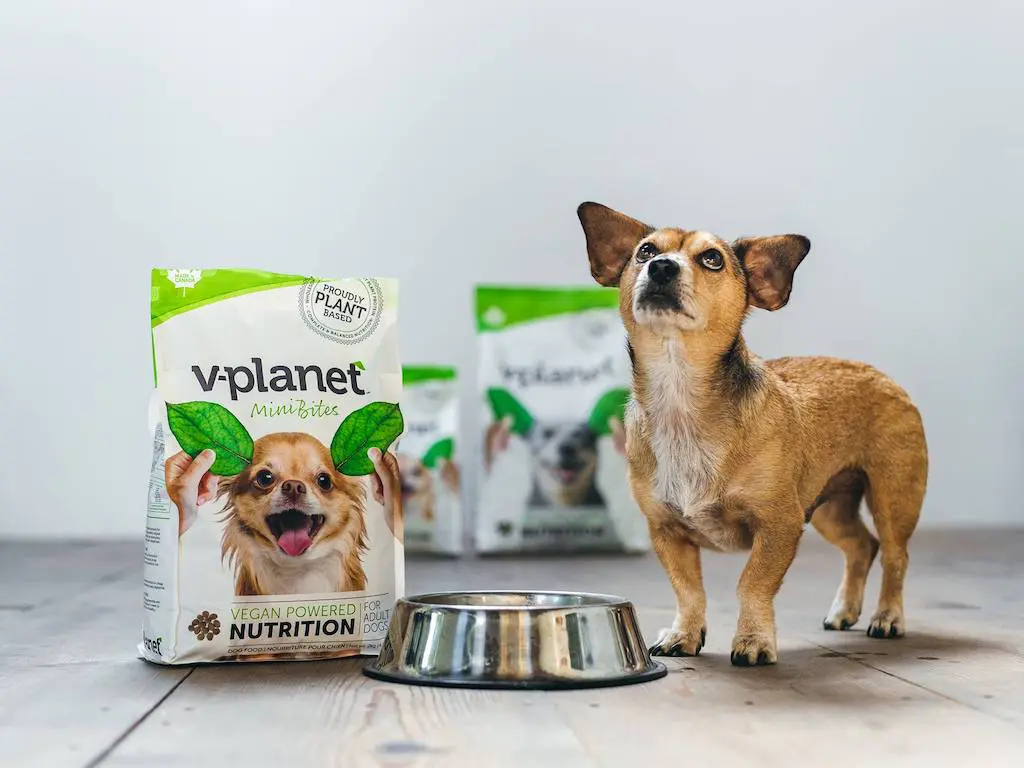Plant-based diets for pets have been gaining popularity in recent years, with more and more pet owners choosing to feed their furry companions a diet solely consisting of plants. This trend has been largely influenced by the growing interest in plant-based diets for humans and the belief that a plant-based diet is a healthier option for both humans and animals. However, this shift towards a plant-based diet for pets has also sparked a debate among pet owners, veterinarians, and animal nutrition experts. While some believe that a plant-based diet can offer various health benefits for pets, others argue that it may not provide the necessary nutrients for optimal health and may even be harmful to their well-being. This leads to the question: are plant-based diets for pets truly healthful or harmful? In this article, we will explore the pros and cons of feeding pets a plant-based diet, backed by scientific research and expert opinions, to help pet owners make informed decisions about their furry friends’ dietary needs.

Experts analyze plant-based pet diets
Feeding domestic pets a plant-based diet has become a topic of interest among pet owners and experts alike, as the demand for vegan and vegetarian options continues to rise. In order to better understand the feasibility and health implications of such diets, numerous experts have delved into the subject, offering valuable insights and nutritional considerations. These experts have examined the potential benefits and drawbacks of plant-based diets for pets, taking into account the specific nutritional needs of different species and the potential challenges in meeting those needs through plant-based sources alone. Their analysis sheds light on important factors to consider when contemplating a plant-based diet for our beloved animal companions.
Health concerns for plant-based pets
Examining the feasibility and health implications of feeding domestic pets a plant-based diet, including expert opinions and nutritional considerations, it is important to acknowledge the potential health concerns that may arise from such dietary choices. While some owners may opt for a plant-based diet for ethical or environmental reasons, it is crucial to understand that animals have unique nutritional requirements that must be met for optimal health. One of the primary concerns is ensuring an adequate intake of essential nutrients, such as protein, vitamins, and minerals, which are predominantly found in animal-based sources. Without careful planning and supplementation, a solely plant-based diet may result in nutrient deficiencies and imbalances, leading to various health issues for pets. Additionally, certain animals, such as cats, have specific dietary needs that are challenging to meet solely through plant-based options. Therefore, it is essential for pet owners considering plant-based diets for their pets to consult with veterinarians and animal nutritionists to ensure the dietary requirements are met to maintain the overall well-being and health of their beloved companions.
Nutritional balance in plant-based diets
When considering nutritional balance in plant-based diets, it is imperative to ensure that all necessary nutrients are adequately provided for the health and well-being of pets. While plant-based diets can be suitable for some animals, it is crucial to seek guidance from veterinary professionals who specialize in nutrition to develop a balanced and appropriate dietary plan. The key to achieving nutritional balance lies in understanding the specific nutrient requirements of each species and selecting plant-based sources that can adequately meet those needs. This involves careful consideration of protein sources, including legumes, grains, and soy-based products, to provide essential amino acids. Additionally, supplements such as vitamin B12, omega-3 fatty acids, and taurine may be necessary to address potential nutrient deficiencies. Monitoring and regular veterinary check-ups are essential to assess the pet’s overall health and make any necessary adjustments to the diet to ensure long-term nutritional balance and well-being.
Veterinarians weigh in on plant-based
Examining the feasibility and health implications of feeding domestic pets a plant-based diet, including expert opinions and nutritional considerations, veterinarians play a crucial role in providing insight into this topic. With their extensive knowledge and expertise, veterinarians offer valuable perspectives on whether a plant-based diet is suitable for pets. They emphasize the importance of ensuring proper nutritional balance and meeting all essential nutrient requirements to maintain the health and well-being of animals. By consulting with veterinary professionals who specialize in nutrition, pet owners can receive tailored guidance and develop a comprehensive dietary plan that takes into account the specific needs of their pets. Regular monitoring and veterinary check-ups are essential to assess the overall health of the pet and make any necessary adjustments to the plant-based diet to ensure optimal nutrition.
Can domestic pets thrive plant-based?
When considering whether domestic pets can thrive on a plant-based diet, it is crucial to examine the available evidence and research on the subject. While some pet owners may choose to feed their pets a plant-based diet for ethical or environmental reasons, it is important to understand the potential health implications and nutritional considerations. According to experts in the field, including veterinarians and animal nutritionists, domestic pets have specific dietary requirements that must be met to ensure their well-being. Dogs, for example, are omnivores and can tolerate a wider range of diets compared to cats, who are obligate carnivores. However, even in the case of dogs, it is essential to ensure proper nutrient balance, including adequate protein, essential fatty acids, vitamins, and minerals. This may require careful selection of plant-based protein sources and supplementation to meet their nutritional needs. Additionally, individual pets may have unique dietary requirements or health conditions that should be taken into account. Therefore, it is recommended that pet owners consult with veterinary professionals who specialize in pet nutrition to develop a well-balanced and individualized plant-based diet plan for their pets. Regular monitoring and veterinary check-ups are imperative to evaluate the pet’s overall health and make any necessary adjustments to the diet to ensure optimal nutrition and well-being.
Examining feasibility of plant-based diets
Examining the feasibility and health implications of feeding domestic pets a plant-based diet involves considering various factors, including expert opinions and nutritional considerations. While some pet owners may be interested in adopting plant-based diets for their pets, it is essential to evaluate the potential impact on their overall health and well-being. According to veterinarians and animal nutritionists, domestic pets have specific dietary requirements that must be met to support optimal health. Dogs, being omnivores, have a broader tolerance for different diets compared to cats, who are obligate carnivores. However, ensuring proper nutrient balance remains crucial for both species. This entails selecting suitable plant-based protein sources and incorporating necessary supplements to address any nutritional deficiencies. It is important to recognize that the feasibility of a plant-based diet for pets may vary on an individual basis, taking into account their specific health needs, medical conditions, and overall dietary requirements. Careful consideration and guidance from veterinary professionals are necessary to ensure the well-being of domestic pets on a plant-based diet.
Nutrient deficiencies in plant-based pets
Nutrient deficiencies in plant-based pets are a significant concern when considering the feasibility and health implications of adopting a plant-based diet. While it is possible to provide dogs and cats with a nutritionally balanced plant-based diet, it requires careful planning and consideration of specific nutrient requirements. One of the main challenges with plant-based diets for pets is ensuring sufficient protein intake. Dogs can better adapt to plant-based protein sources, such as legumes and soy, but it is crucial to ensure that these sources provide all essential amino acids. Cats, on the other hand, have a higher protein requirement and rely heavily on animal-based protein for essential nutrients, such as taurine and arachidonic acid. These nutrients are challenging to obtain from plant-based sources alone, and their deficiency can lead to significant health problems. Therefore, pet owners considering a plant-based diet for their pets must work closely with veterinarians and animal nutritionists to develop a well-balanced diet that meets all their nutritional needs.

Potential harm in plant-based diets
Examining the feasibility and health implications of feeding domestic pets a plant-based diet, including expert opinions and nutritional considerations, reveals potential harm in plant-based diets for pets. While some pet owners may choose to adopt a plant-based diet for ethical or environmental reasons, it is essential to understand the potential risks involved. One of the primary concerns is the inadequate intake of essential nutrients. Plant-based diets may not provide the necessary amounts of vital nutrients, including protein, taurine, and arachidonic acid, which are crucial for the overall health and well-being of pets. Insufficient protein intake can lead to muscle wasting and impaired immune function, while deficiencies in taurine and arachidonic acid can cause heart and eye problems in cats. Additionally, plant-based diets may lack specific vitamins and minerals, such as vitamin B12 and iron, which are typically found in animal-based products. Therefore, careful consideration and consultation with a veterinarian is essential for pet owners considering a plant-based diet for their pets to ensure their nutritional needs are adequately met and potential harm is minimized.
Addressing health concerns for pets
When addressing health concerns for pets, it is important to consider their specific dietary needs and consult with a veterinarian. Regular check-ups and discussions with a veterinary professional can help identify any potential health issues and ensure that pets are receiving adequate nutrition. It is also crucial to provide a balanced and appropriate diet based on the specific species and individual needs of the pet. This may involve a combination of high-quality commercial pet food and occasional supplementation, as recommended by the veterinarian. Additionally, promoting regular exercise, providing a safe and stimulating environment, and monitoring weight and body condition can contribute to overall health and well-being for pets. By taking a proactive approach to address health concerns, pet owners can help ensure the long-term vitality and happiness of their furry companions.
Expert opinions on plant-based feeding.
Examining the feasibility and health implications of feeding domestic pets a plant-based diet, including expert opinions and nutritional considerations, is a fundamental aspect of determining the suitability of such dietary choices for our animal companions. Veterinary professionals and animal nutritionists play a crucial role in providing insights into the potential benefits and challenges associated with plant-based feeding for pets. These experts emphasize the importance of ensuring that any diet, including plant-based options, meets the specific nutritional requirements of each species. They highlight the significance of proper protein intake, essential amino acids, vitamins, minerals, and fatty acids in maintaining optimal health for pets. Veterinary professionals also advise close monitoring of individual pets’ responses to plant-based diets and prompt adjustments to address any potential deficiencies or imbalances. By seeking expert opinions and carefully considering the nutritional implications, pet owners can make informed decisions regarding the suitability of plant-based feeding for their beloved companions.
In conclusion, while there may be potential benefits to incorporating plant-based diets for pets, it is important for pet owners to carefully consider the potential risks and consult with a veterinarian before making any significant changes to their pet’s diet. Each animal is unique and may have different dietary needs, so it is crucial to prioritize their individual health and well-being. As with any dietary change, it is always best to consult with a professional to ensure the best possible outcome for our beloved furry companions.

4.6/5 - (20 votes)



